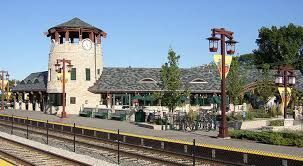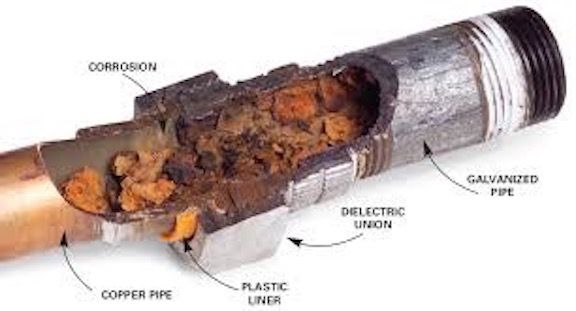John Gannon
The Hidden Dangers of Chemical Drain Cleaners (and Safer Alternatives)
If you’ve ever had a slow or clogged drain, you’ve probably been tempted to grab a bottle of store-bought chemical drain cleaner. The promise is appealing—pour it in, wait a few minutes, and watch your clog disappear.
Call Us
Unfortunately, what most homeowners don’t realize is that these products can do far more harm than good. Over time, they can damage your plumbing, harm your health, and even create bigger problems down the road.
At Reliable Plumbing & Sewer Service Inc., we want our customers in Tinley Park and the surrounding suburbs to understand the risks—and know the safer options available.
Why Chemical Drain Cleaners Are a Problem
1. They Can Damage Your Pipes
Most chemical drain cleaners use harsh substances like sodium hydroxide or sulfuric acid to dissolve blockages. While they might eat through the clog, they can also eat through your pipes.
- PVC Pipes: The heat from the chemical reaction can warp or melt them.
- Older Metal Pipes: Corrosion can weaken pipe walls, leading to leaks.
2. They Put Your Health at Risk
These cleaners can cause:
- Skin burns from accidental splashes.
- Harmful fumes that irritate your eyes, nose, and lungs.
- Dangerous reactions if mixed with other household cleaners.
3. They’re Hard on the Environment
Once flushed down, chemical cleaners enter the water system and can harm aquatic life. They also contribute to long-term water quality issues.
4. They Often Provide Only a Temporary Fix
If the clog is caused by grease buildup, foreign objects, or a bigger sewer line issue, chemicals won’t fix the root cause—they’ll just temporarily punch a small hole in the blockage.
Safer, More Effective Alternatives
1. Mechanical Methods
- Plunger: Simple, effective, and safe for your pipes.
- Drain Snake (Auger): A hand-cranked or motorized tool that physically removes the clog.
2. DIY Solutions
- Hot Water & Dish Soap: Works well for grease-related clogs in kitchen sinks.
- Baking Soda & Vinegar: Creates a natural fizzing reaction to help break up small blockages.
3. Professional Drain Cleaning
When in doubt, call a licensed plumber.
We use specialized tools like motorized augers to clear clogs completely—without damaging your pipes.
When to Call Reliable Plumbing & Sewer Service
If you’ve tried safe home remedies and your drain is still slow—or if you notice recurring clogs—there’s likely a deeper issue. That’s when professional inspection and cleaning can save you money (and headaches) in the long run.
At Reliable Plumbing, we’ll diagnose the root of the problem, recommend the safest solution, and keep your plumbing in top shape.
💡 Tip from Our Team:
Never mix different types of chemical drain cleaners—it can create toxic gas or cause dangerous chemical reactions.
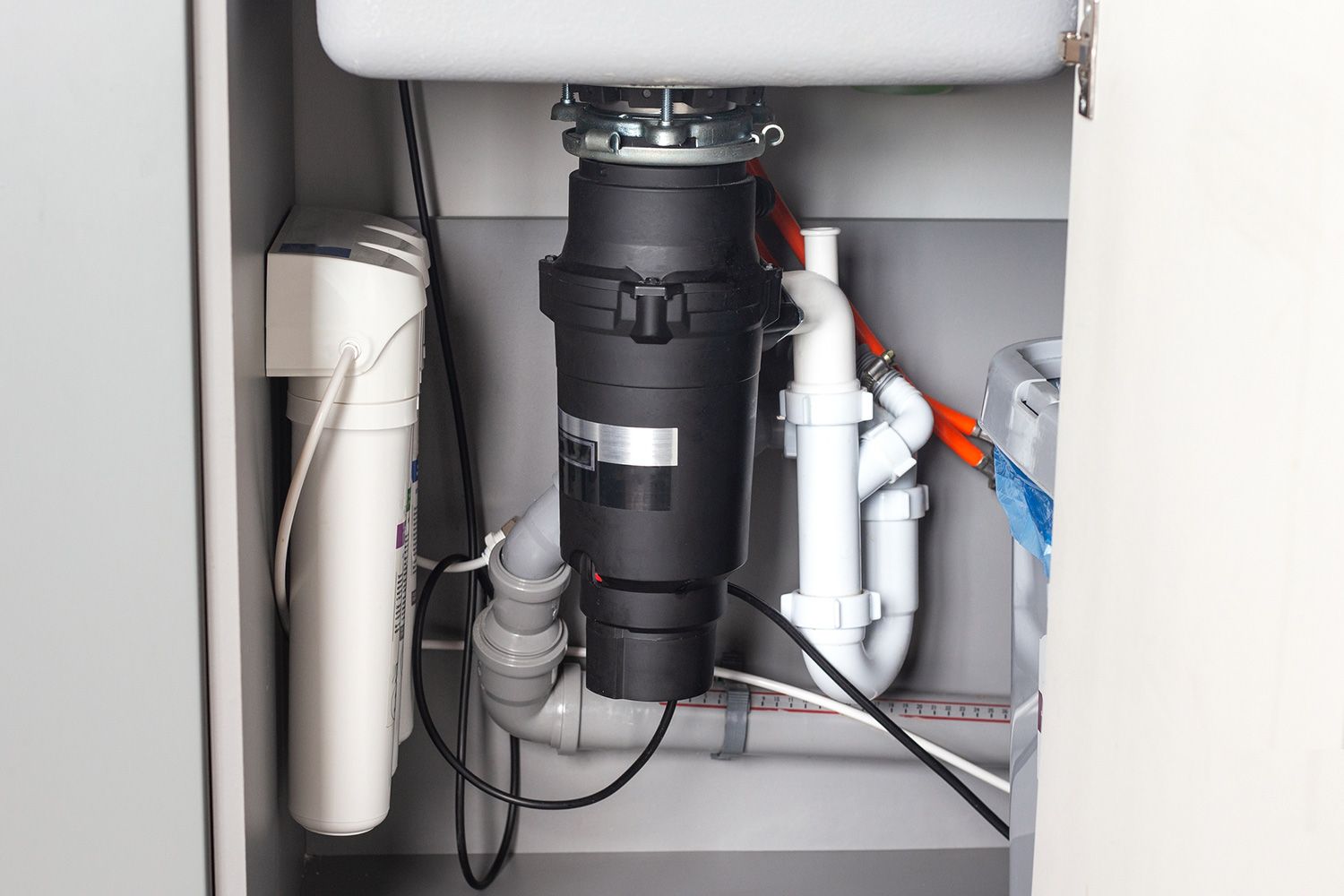
Your garbage disposal is one of the hardest-working appliances in your kitchen. It chews up food scraps, keeps your sink clear, and helps make cleanup quick. But it’s not invincible. The truth is, many clogs and breakdowns happen because of what’s put down the disposal —and even the most durable units have limits. Knowing what’s safe (and what’s not) can save you costly repairs and keep your plumbing running smoothly. At Reliable Plumbing & Sewer Service Inc ., we’ve seen it all—from disposals jammed with bottle caps to pipes clogged with pasta. Here’s what you need to know to keep yours in top shape. What’s Safe to Grind in a Garbage Disposal While disposals aren’t meant to replace your trash can, they can safely handle certain food scraps: Soft fruits and vegetables (apple slices, peeled cucumbers) Small amounts of cooked meat (cut into pieces) Citrus peels (helps freshen the unit—use sparingly) Cold water while grinding (helps move debris through pipes) What NOT to Put Down the Disposal Certain items may seem harmless but can wreak havoc on your disposal and plumbing: 1. Potato Peels & Starchy Foods When ground up, they turn into a sticky paste that clings to the blades and pipes. 2. Grease, Oil, and Fat These cool and solidify in your pipes, creating blockages that worsen over time. 3. Fibrous Vegetables Celery, corn husks, and asparagus fibers can wrap around the blades and jam the motor. 4. Eggshells The membrane inside eggshells can tangle around the grinder, and the shell grit can stick in pipes. 5. Pasta and Rice They expand with water and can fill the trap, causing slow drains or backups. Best Practices for Garbage Disposal Maintenance Run Cold Water While Grinding This helps solidify any grease so it’s chopped up and flushed away instead of coating your pipes. Clean the Disposal Regularly Grind a few ice cubes to knock debris off the blades, then follow with citrus peel for freshness. Feed Items Slowly Don’t overload the disposal—give it time to grind each batch. Keep It Running a Few Seconds After Food Clears This ensures everything washes fully into the main drain line. When to Call Reliable Plumbing If your garbage disposal makes unusual noises, clogs frequently, or won’t turn on, it’s time for professional help. We can clear the blockage, repair the unit, or replace it if needed. 💡 Tip from Our Team: Treat your garbage disposal like a helper—not a trash can. The better you care for it, the longer it will serve you. 📞 Call Reliable Plumbing & Sewer Service Inc . at (708) 633-9614 or schedule service online for expert garbage disposal repair and drain cleaning in Tinley Park and the surrounding suburbs.
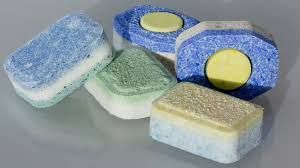
Yesterday, I helped a homeowner with a completely backed-up kitchen sink. They’d already tried every DIY fix in the book with no luck. When I arrived, I discovered the culprit: powder-based dishwasher pods like Cascade. Over time, the powder inside these pods can build up in your drain lines. Once activated by water, it tends to form a thick, cement-like sludge that clings to the inside of your pipes. In this case, the blockage was so dense I had to use a specialized machine to break it apart and clear the line. This isn’t a one-off situation—I get calls like this all the time. Powder detergents (especially from pods) can be rough on your plumbing, especially if your pipes already have a bit of grease or buildup. Plumber's Recommendation: Switch to a liquid dishwasher detergent or liquid gel pods. They're much gentler on your plumbing and less likely to create long-term issues. Avoid an expensive plumbing call—change your detergent today! If you’re dealing with a backed-up sink or slow drainage in your kitchen, give us a call at Reliable Plumbing & Sewer Service Inc. We’re here to help!
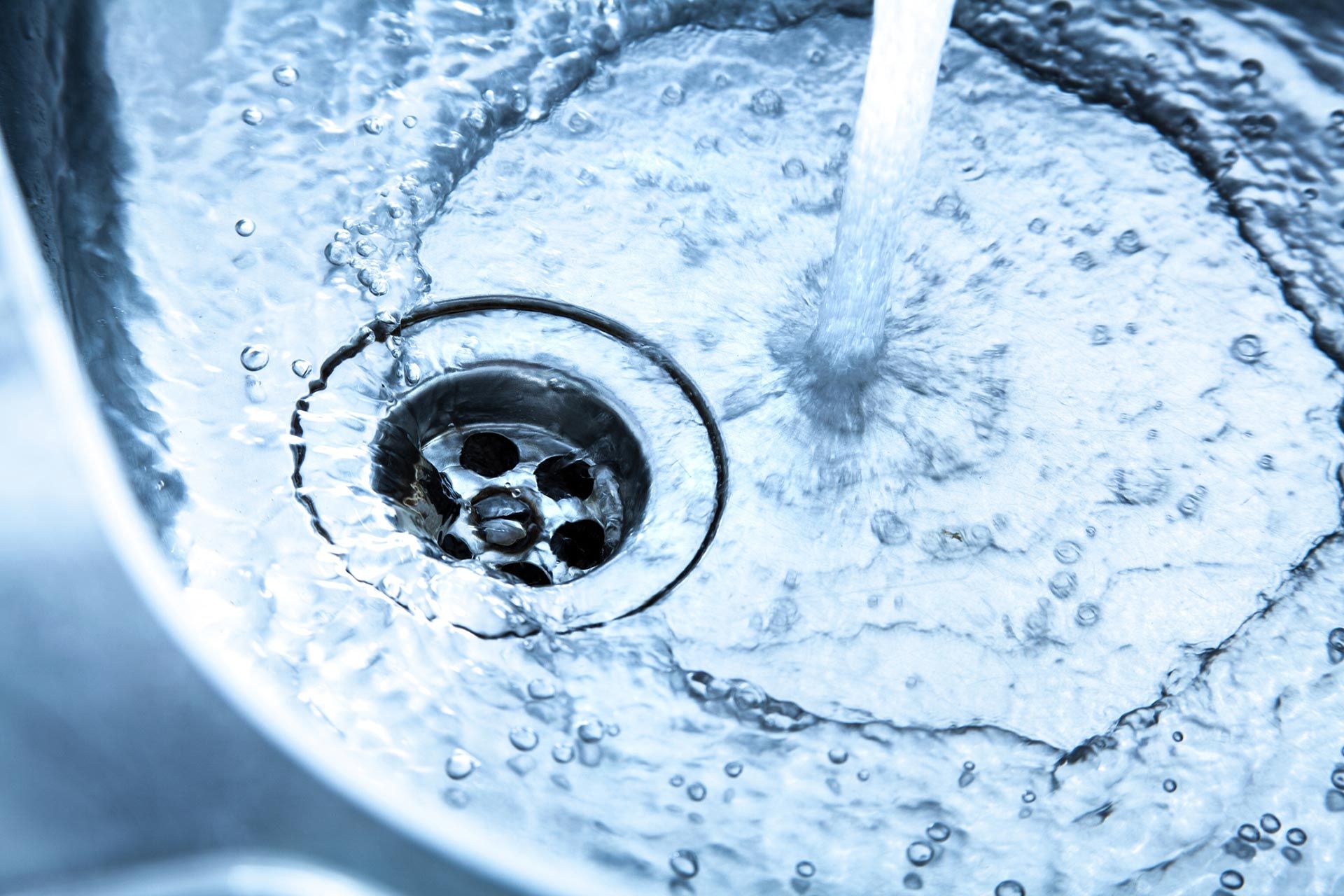
If you’ve ever seen a bug crawl out of a sink or smelled something foul from an unused drain, you’re not imagining things. Insects, sewer gases, and even rodents can find their way into your home through dry or unused drains. In fact, one of the most overlooked ways pests enter your home is through dry plumbing traps—especially in laundry rooms, guest bathrooms, or basement floor drains that rarely get used. Here’s what causes it—and how to stop it before it becomes a bigger problem. 🪤 Why Do Pests Come Through Drains? Inside every drain is a curved pipe known as a P-trap. Its job is to hold water, which acts as a barrier to keep sewer gases and small pests from coming up the pipe. But if that drain isn’t used for a few weeks (or even days in dry weather), the water in the trap evaporates. Once that happens, it’s an open invitation for: Cockroaches Drain flies Silverfish Spiders Sewer gas odors In some cases, mice and rats have even been known to enter homes through the sewer system and come up through dry traps! 🧰 How to Prevent Pests from Coming Through Your Drains 1. Run Water in Unused Drains Weekly Flush each unused sink, tub, shower, and floor drain with cold water for 30–60 seconds weekly. This keeps the trap filled and functioning. 2. Add Mineral Oil to Slower-Evaporating Drains For drains you don’t use often (like basement floors), pour about a cup of water down the drain, followed by a few tablespoons of mineral oil. The oil slows down evaporation and keeps the water seal intact longer. 3. Use Drain Plugs or Caps If you know a sink or tub won’t be used for a while (like a vacation home or guest bathroom), seal it with a drain plug or cap to block pests entirely. 4. Install a Trap Primer For long-term protection, especially in basement floor drains, a trap primer is a small device that automatically adds water to the trap as needed. It’s a professional installation but worth the investment in pest prevention. 5. Get a Plumbing Inspection if You Notice Odors or Bugs If pests are already showing up or there’s a foul smell coming from your drain, it may be more than just a dry trap. You could have cracked pipes, leaks, or broken venting—issues that only a licensed plumber should address. 🏡 Reliable Plumbing: Your Partner in Drain Health At Reliable Plumbing & Sewer Service Inc., we help Tinley Park homeowners prevent costly and creepy surprises from neglected plumbing systems. Whether it’s identifying dry traps, installing trap primers, or fixing sewer line issues—we’ve got your back. 🧼 Keep Your Drains Full and Your Home Pest-Free Don’t let dry drains invite unwanted guests into your home. A few simple habits—or the right plumbing solutions—can make all the difference. 📞 Call Reliable Plumbing & Sewer Service Inc. at (708) 633-9614 or Schedule Your Drain Checkup Online today.
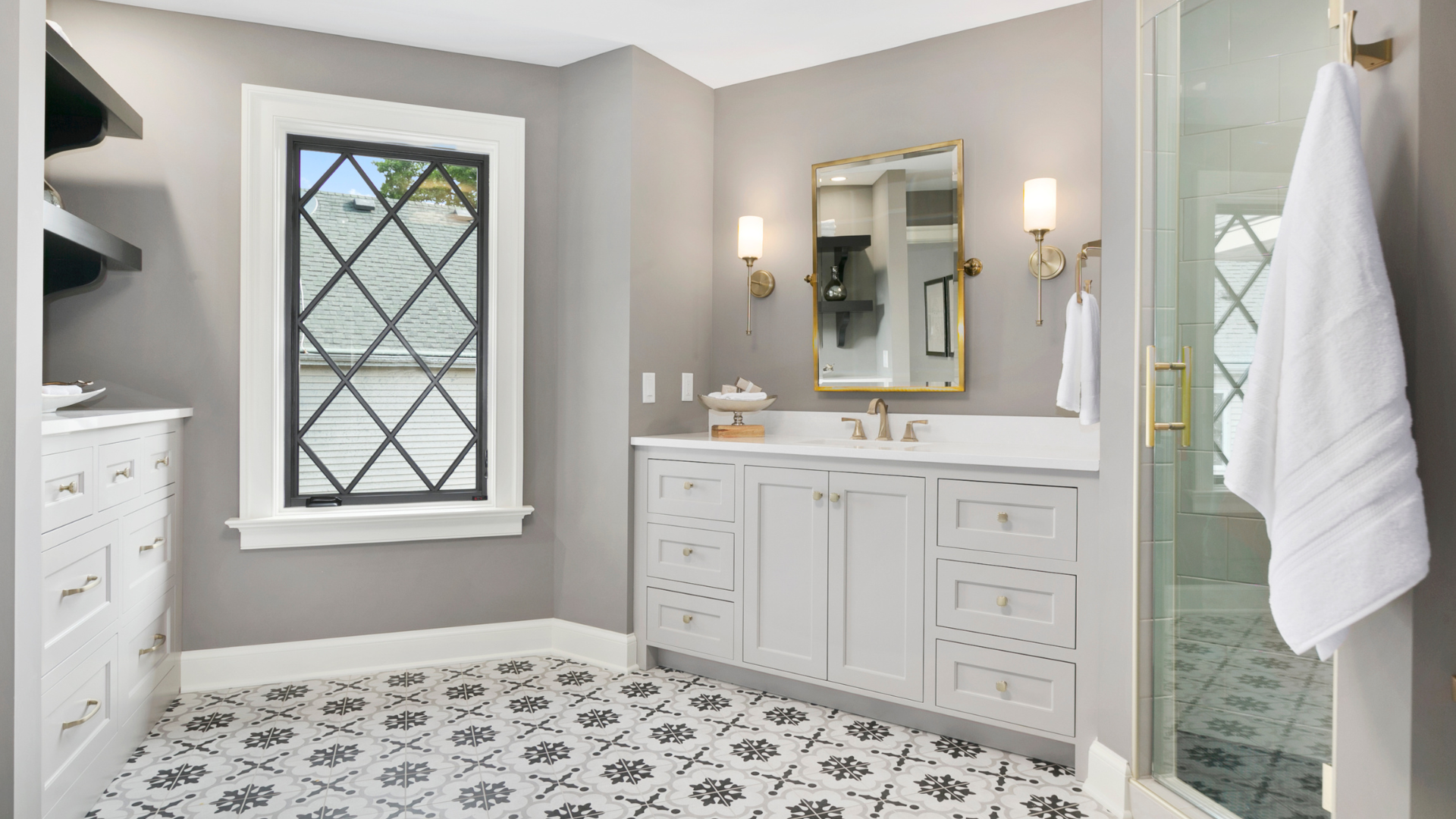
When a plumbing emergency hits—or you're planning upgrades like a new water heater or bathroom remodel—finding a trustworthy plumber can make all the difference. But with so many companies out there, how do you know which one is legit? At Reliable Plumbing & Sewer Service Inc., we've seen firsthand how homeowners in Tinley Park and surrounding suburbs can get burned by unlicensed, uninsured, or inexperienced plumbers. Here’s what to look for when choosing the right professional for your job. 1. ✅ Proper Licensing & Certification A licensed plumber is more than just a formality—it's your first sign of a qualified professional. In Illinois, all plumbers must be licensed by the Illinois Department of Public Health (IDPH). A legit company should have no problem sharing their license number and credentials. Tip: Check their license status online or ask directly. If they hesitate, walk away. 2. ✅ Insurance Coverage (Liability & Workers’ Comp) Always ask if the plumbing company carries general liability and workers’ compensation insurance. This protects you, your home, and the workers in case of an accident or property damage. Without insurance, you could be on the hook for repairs or medical bills if something goes wrong on your property. 3. ✅ Transparent Estimates & Pricing A reliable plumber will give you a clear, upfront estimate before starting any work. That includes breaking down parts, labor, and any potential add-ons—without hidden fees. At Reliable Plumbing, we believe in fair, honest pricing—and no surprise charges once the job’s done. 4. ✅ Solid Local Reputation & Reviews Look for a plumbing company with a strong track record in your area. Check Google reviews, Better Business Bureau (BBB) ratings, and community Facebook groups. Do they respond professionally to feedback? We’re proud to serve Tinley Park, Orland Park, Mokena, Oak Lawn, Frankfort and many of the surrounding suburbs with many 5-star reviews from satisfied customers. 5. ✅ Experience With the Job You Need Not all plumbers specialize in the same types of jobs. If you're dealing with sewer line repairs, sump pump installations, or repiping, make sure the company has done similar work and can provide examples. We’ve handled everything from backed-up kitchen sinks to full bathroom plumbing overhauls—no job too big or small. 6. ✅ Written Guarantees or Warranties A reputable plumber stands by their work. Ask if they offer a warranty on parts and labor. It’s a sign they believe in the quality of their service—and won’t disappear if problems arise later. Reliable Plumbing offers service warranties because we do the job right the first time—but we’re always here if you need us. 7. ✅ Professionalism From First Call to Final Cleanup Legit plumbers show up on time, communicate clearly, wear clean clothes, and treat your home with respect. Clean vehicles, quality tools, and even how they leave your space after the job says a lot about how seriously they take their work. Ready to Hire a Licensed Plumber in your Area? Don’t leave your plumbing to chance. Whether you need emergency repairs or are planning a renovation, Reliable Plumbing & Sewer Service Inc. is here to help. ✅ Licensed ✅ Insured ✅ Locally Trusted ✅ Fast, Friendly, and Fair
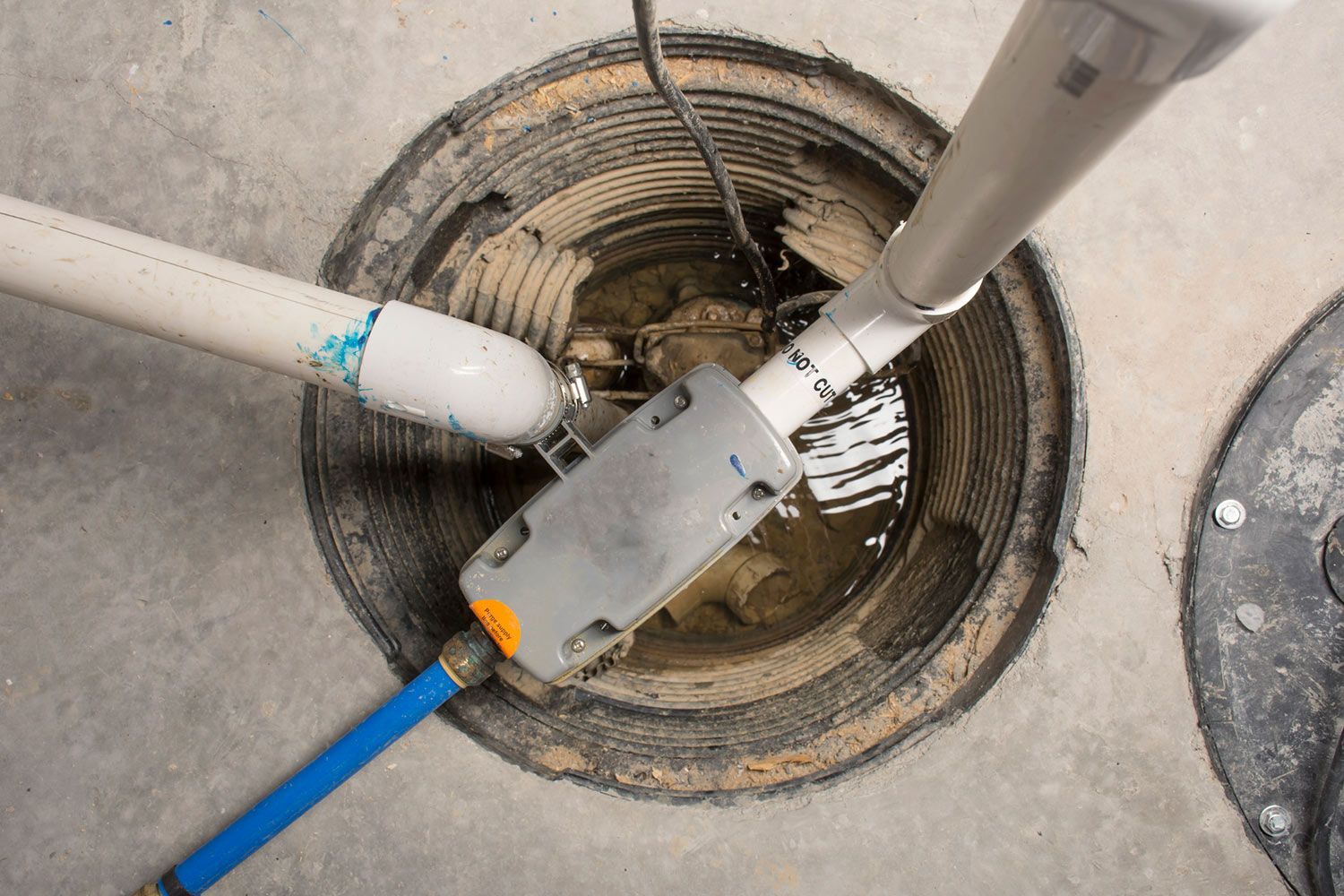
When something goes wrong with your plumbing system, it’s not always easy to tell whether it can wait or if you need emergency plumbing services. At Reliable Plumbing & Sewer Service Inc., we’ve seen it all—from midnight burst pipes to Saturday morning sump pump failures. If you’re dealing with any of the signs below, it’s time to search for a licensed plumber near you right away. 1. Water Pooling Around Your Foundation This could mean a sewer line repair is urgently needed. A damaged sewer line can wreak havoc on your home’s structure and should be inspected immediately. 2. Sudden Drop in Water Pressure Whether it's in the shower or kitchen sink, a loss in water pressure can signal a pipe leak repair issue that needs attention. 3. Unpleasant Odors from Drains Smelly drains are more than just annoying—they might indicate a clogged sewer line. Fast and effective drain cleaning can clear the issue before it worsens. 4. Water Heater Making Strange Noises Don’t ignore banging or rumbling sounds from your water heater. These could mean it’s time for a water heater repair or even a replacement. 5. Frequent Toilet Backups If your toilet is clogging regularly, there might be a deeper issue in your system. Clogged toilet problems are common and easily solved by a professional plumber. 6. Visible Mold or Mildew A hidden leak can cause mold to grow in walls or ceilings. You’ll need a expertise plumbing service to locate and repair it before it damages your home further. 7. Gurgling Drains When your drains gurgle after flushing or running water, it might signal a vent or sewer problem. It’s best to have a plumbing inspection right away. 8. Slow Drains Throughout the House One slow drain might be an isolated problem, but multiple slow drains suggest a need for thorough drain and sewer cleaning. 9. No Hot Water Running out of hot water quickly? You may need a licensed plumber to check your water heater system for sediment buildup or faulty parts. 10. Sump Pump Failure Your sump pump installation may be outdated or malfunctioning. A quick professional replacement can save your basement from flooding. Need Reliable Emergency Plumbing Services? At Reliable Plumbing & Sewer Service Inc., we provide affordable plumbing solutions. Whether you’re searching for an emergency plumber near me or need help with routine maintenance, our expert team is here to help. 📞 Call us now or schedule your service online. We’ll be there when you need us most.
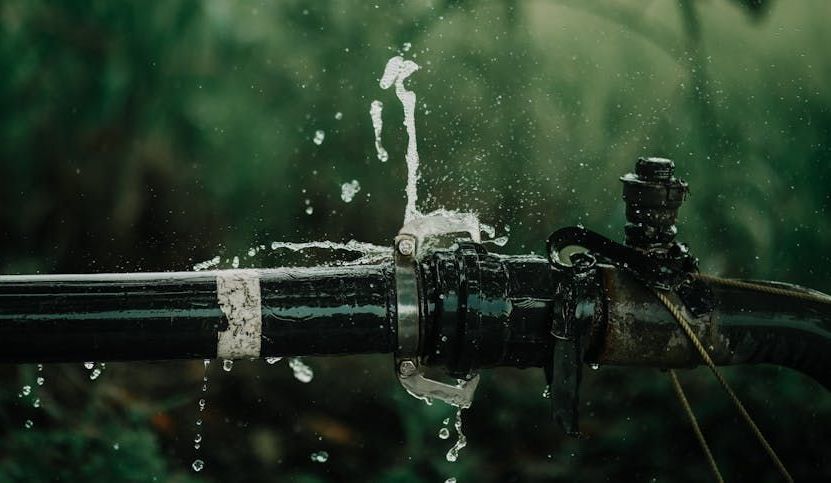
Let’s face it—plumbing problems are never fun. Whether it’s a leaky faucet, a clogged drain, or something more serious like a busted pipe, the last thing you want is to shell out a ton of money to fix it. So when someone offers to do the job for half the price of a licensed plumber, it’s tempting. Really tempting. But here’s the truth: when it comes to plumbing, you get what you pay for . And hiring someone who isn’t licensed can end up costing you way more in the long run. What's the Big Deal About a Plumbing License? Think of a plumbing license like a seal of approval. It means that the plumber has gone through training, passed tests, and knows local codes and safety regulations. They’ve been vetted, held to a standard, and are usually insured—so if something goes wrong, you’re protected. On the flip side, unlicensed plumbers may not be up to date on building codes (which can get you in trouble if you’re doing renovations or selling your house), and if they make a mistake, you're the one left holding the bag. Real Talk: What Can Go Wrong? Here are just a few ways trying to save a buck can backfire: Leaks and Water Damage: If something isn’t sealed or connected right, you might not notice until your ceiling starts to sag or your basement turns into a pond. Water damage is expensive—and often not covered by insurance if it’s due to unlicensed work. Failed Inspections: If you're doing a renovation or addition, a failed inspection due to poor plumbing work means delays, fines, and more money to fix it. Dangerous Mistakes: Plumbing connects directly to your water supply and, in some cases, gas lines. One wrong move can create a health hazard—or even an explosion. The Licensed Plumber Advantage Knowledge of Codes and Regulations: A licensed plumber knows the local rules inside and out. That means the job gets done right and passes inspection the first time. Proper Tools and Materials: They’ll use quality parts that last—not cheap knock-offs that break in six months. Insurance and Guarantees: If something does go wrong, licensed pros are usually insured and offer warranties, so you're not stuck with the repair bill. Peace of Mind: Maybe the most important part— you can sleep at night knowing the job was done safely and correctly. Bottom Line We all want to save money, but when it comes to plumbing, cutting corners can cost you big time. Hiring a licensed plumber might cost a bit more up front, but it protects your home, your wallet, and your peace of mind in the long run. So the next time you're tempted by a "too-good-to-be-true" quote, remember: if it sounds too good to be true... it probably is. Need a job done right? Call a licensed plumber. It's not just smart—it's essential.
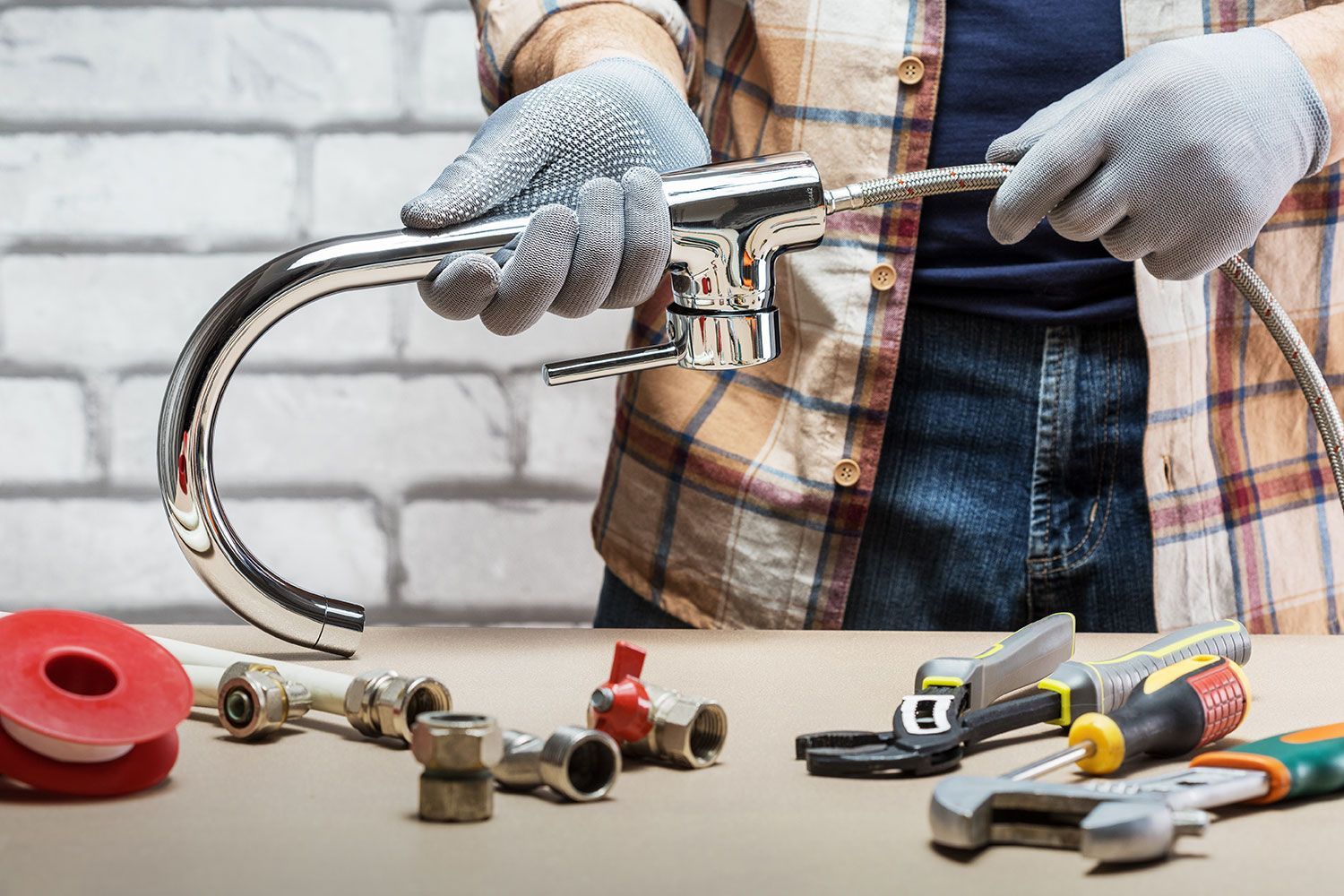
1. What services does Reliable Plumbing & Sewer Service offer? We provide a comprehensive range of residential plumbing services, including sewer and drain cleaning, faucet, sink, and tub installations, toilet repairs, garbage disposal maintenance, water heater services, repiping, and sump and ejector pump installations. 2. How long has Reliable Plumbing & Sewer Service been in business? We have been proudly serving the South Suburbs of Chicago since 1963, delivering quality plumbing solutions to our community. 3. Are you a licensed plumbing contractor? Yes, we are a licensed Illinois plumbing contractor with the license number 055-020192. 4. Do you offer emergency plumbing services? We understand that plumbing issues can arise unexpectedly, so we provide emergency and same-day services to address urgent needs promptly. 5. What areas do you serve? We proudly serve Tinley Park, Mokena, Orland Park, Oak Lawn, and the surrounding communities in the South Suburbs of Chicago. 6. What brands of products do you use? We supply and install top-quality, brand-name pumps and water heaters to ensure durability and performance. 7. How can I schedule an appointment? You can request an appointment by calling us at 708-633-9614 or visiting our website to fill out the appointment request form. 8. Do you offer warranties on your services? Yes, we offer comprehensive warranties to provide peace of mind and ensure the quality of our services. 9. What payment methods do you accept? We accept various payment methods. Please contact our office directly at 708-633-9614 for detailed information. 10. How can I prevent clogged drains? To prevent clogged drains, avoid pouring grease, coffee grounds, and food scraps down the drain. Use drain covers to catch hair and debris, and periodically flush drains with hot water. 11. What should I do if my toilet overflows? If your toilet overflows, turn off the water supply valve behind the toilet immediately to stop the flow. Clean up any spilled water to prevent damage, and then contact a professional plumber to address the underlying issue. 12. How often should I have my water heater serviced? It's recommended to have your water heater inspected and serviced annually to ensure optimal performance and extend its lifespan. 13. What are the signs that I need to repipe my home? Signs that you may need repiping include frequent leaks, discolored water, reduced water pressure, and visible corrosion on pipes. 14. How can I prevent frozen pipes during winter? To prevent frozen pipes, insulate exposed pipes, keep your home adequately heated, and allow faucets to drip during extreme cold to keep water moving. 15. What should I do if I have a burst pipe? In case of a burst pipe, immediately shut off the main water supply to prevent further damage and contact a professional plumber for emergency repairs. 16. Why is my water bill higher than usual? A sudden increase in your water bill could indicate hidden leaks, running toilets, or inefficient fixtures. It's advisable to have a professional plumber inspect your system to identify and fix any issues. 17. Is it safe to use chemical drain cleaners? Using chemical drain cleaners is generally discouraged, as their harsh components can corrode pipes and cause leaks. Instead, use a plunger or drain snake to clear clogs. 18. What causes low water pressure in my home? Low water pressure can result from various issues, including clogged pipes, leaks, or problems with the municipal water supply. A professional plumber can diagnose and resolve the specific cause. 19. How can I extend the lifespan of my plumbing fixtures? Regular maintenance, prompt repairs of leaks, and avoiding harsh chemical cleaners can help extend the lifespan of your plumbing fixtures. 20. Do you offer furnace and air conditioning installation services? Yes, in addition to our plumbing services, we also provide furnace and air conditioning installation to ensure your home's comfort year-round.
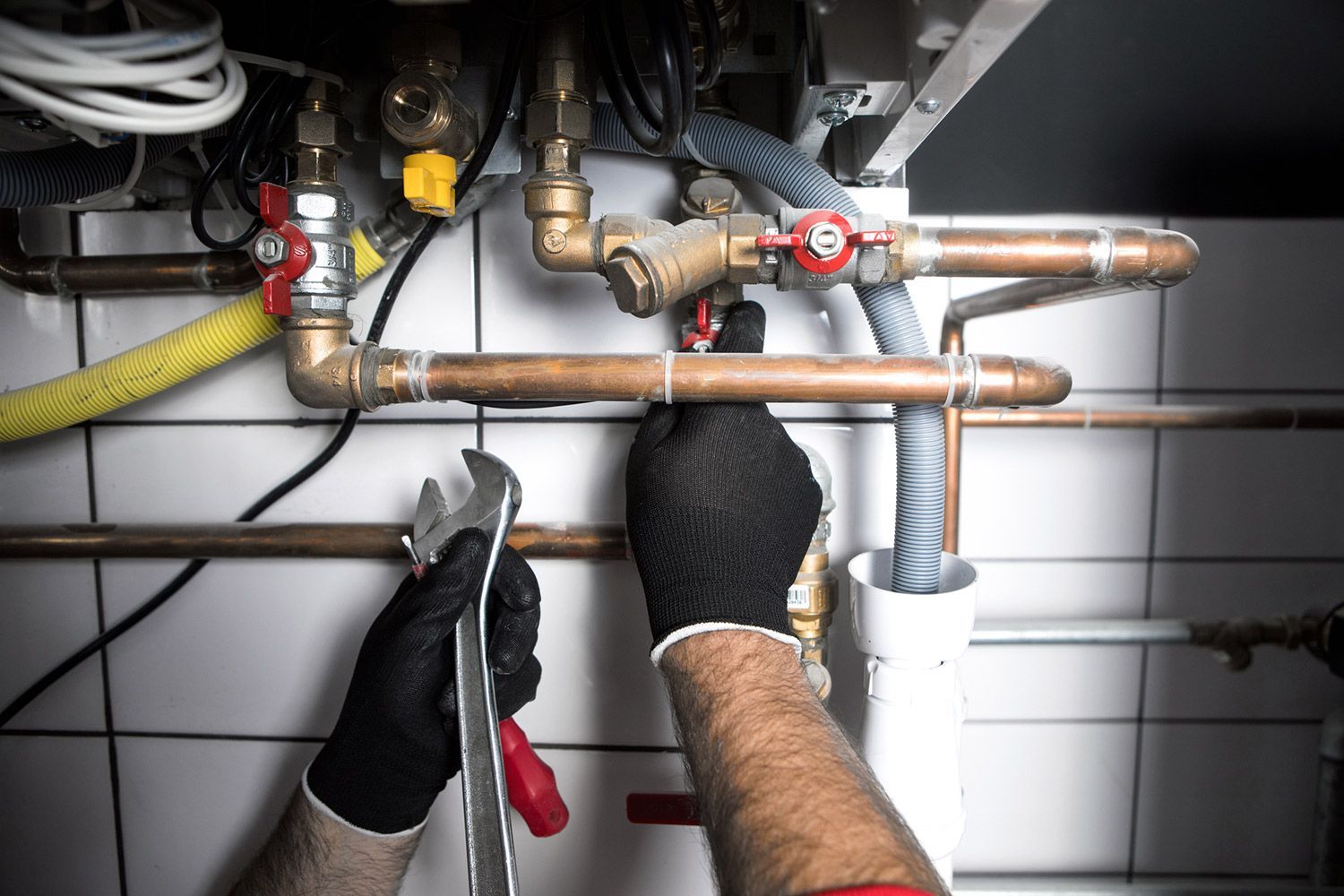
At Reliable Plumbing & Sewer Service Inc., we know that the changing seasons bring more than just shifts in temperature—they also impact your plumbing and sewer system. Understanding how seasonal changes affect your pipes, drains, and fixtures can help you take preventive measures and avoid costly repairs. Winter: The Season of Frozen Pipes Winter is one of the most challenging seasons for plumbing systems. As temperatures drop, water inside your pipes can freeze, leading to expansion and, in some cases, burst pipes. Here’s what you can do to prevent winter plumbing disasters: Insulate Exposed Pipes: Use foam pipe insulation to protect vulnerable pipes in basements, attics, and outdoor areas. Let Faucets Drip: A slow trickle of water can prevent freezing by keeping water moving through the pipes. Shut Off Outdoor Water Supply: Disconnect garden hoses and shut off outdoor spigots to prevent freezing damage. Keep Your Home Warm: Maintaining a consistent indoor temperature helps prevent frozen pipes. Spring: Heavy Rains and Sewer Backups Spring brings rainfall, which can overwhelm sewer systems and cause backups. Melting snow and increased moisture can also lead to foundation shifts that affect underground pipes. Tips for spring plumbing maintenance include: Inspect Your Sewer Lines: Consider a professional sewer inspection to check for clogs or tree root intrusion. Clear Your Gutters and Downspouts: Ensuring proper drainage helps prevent water from pooling near your home’s foundation. Check for Pipe Leaks: The freeze-thaw cycle can cause cracks in pipes, so a thorough inspection is essential. Summer: Increased Water Usage & Clogged Drains With warmer weather, homeowners tend to use more water for lawn care, pools, and outdoor activities. This season also sees an increase in drain and sewer issues due to higher water consumption and food waste from summer gatherings. Be Mindful of Garbage Disposal Use: Avoid overloading it with fibrous or starchy foods like corn husks and potato peels. Watch for Sewer Line Issues: Increased rainfall and tree root growth can affect underground sewer lines, so look out for slow drains and foul odors. Inspect Your Outdoor Plumbing: Hoses, sprinkler systems, and outdoor faucets should be checked for leaks or damage. Fall: Preparing for the Cold Ahead As temperatures drop, fall is the perfect time to prepare your plumbing for winter. Flush Your Water Heater: Sediment buildup can reduce efficiency, so a flush can help maintain performance before the cold months. Check for Pipe Insulation Needs: If you didn’t insulate your pipes in winter, now is the time to do it. Clean Your Drains: Falling leaves can clog outdoor drains and gutters, leading to water buildup and potential flooding. Inspect Sump Pumps: Ensure your sump pump is in working order before heavy fall rains arrive. Year-Round Plumbing Maintenance Regardless of the season, regular plumbing maintenance is key to keeping your system running smoothly. Scheduling professional inspections, fixing minor issues before they become major problems, and following seasonal best practices can save you money and stress in the long run. At Reliable Plumbing & Sewer Service Inc. , we’re here to help you with all your seasonal plumbing needs. Contact us today to schedule an inspection or service appointment to keep your plumbing in top shape all year round!
